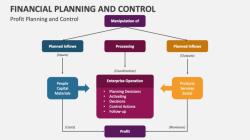What is a fixed annuity interest rate?
A fixed annuity interest rate is the rate of return that an insurance company guarantees to pay on the principal amount invested in a fixed annuity. An annuity is a financial product offered by insurance companies that provides a series of periodic payments to the annuitant (the person who owns the annuity) in exchange for a lump sum payment or a series of premium payments.
In the case of a fixed annuity, the interest rate is predetermined and remains constant for a specified period, often for several years. This contrasts with variable annuities, where the returns are tied to the performance of underlying investments.
Key points about fixed annuity interest rates:
Guaranteed Rate: The insurance company guarantees a fixed interest rate for a set period, providing stability and predictability for the annuitant.
Tax-Deferred Growth: Earnings on the annuity grow on a tax-deferred basis, meaning that taxes are deferred until withdrawals are made.
Maturity Period: Fixed annuities often have a maturity period, after which the annuitant may choose to renew the annuity, withdraw the funds, or convert to another type of annuity.
Conservative Investment: Fixed annuities are considered conservative investment vehicles, suitable for individuals seeking a stable and secure source of income in retirement.
Penalties for Early Withdrawal: There may be penalties or charges for withdrawing funds from a fixed annuity before the end of the surrender period.
When assessing fixed annuity interest rates, it's important for investors to consider factors such as the length of the rate guarantee, surrender charges, and any additional features or riders that may affect the overall performance and flexibility of the annuity. Additionally, individuals should carefully review the terms and conditions of the annuity contract before making any financial decisions.
Fixed Annuity Interest Rates: Demystifying Growth and Returns
1. What is a fixed annuity interest rate?
In a fixed annuity, your principal and all subsequent deposits earn a guaranteed interest rate set at the time of purchase. This rate remains fixed for a specific period, known as the guaranteed interest rate (GIR) period. It is essentially a promise from the issuing insurance company regarding the minimum annual growth your annuity will experience within that timeframe.
2. Impact on annuity growth and returns:
The fixed interest rate directly influences the growth of your annuity during the GIR period. Your money compounds annually at the guaranteed rate, boosting your total value. Higher rates lead to faster accumulation, while lower rates translate to slower growth. However, remember that these returns are pre-determined and not market-linked, meaning they won't fluctuate like stocks or bonds.
3. Variations and considerations:
- Interest rate tiers: Many annuities offer tiered rates based on the initial investment amount. Larger deposits often secure higher guaranteed rates.
- Crediting method: Interest can be credited annually, monthly, or even daily, impacting the compounding effect and slightly influencing total returns.
- Renewal rates: After the GIR period ends, the annuity typically earns a new, lower rate determined by the issuer and market conditions. Be mindful of these potential decreases.
- Surrender charges: Early withdrawals before the surrender charge period ends may incur penalties, diminishing your returns.
4. Comparing to other investments:
- Fixed annuity rates currently offer higher returns than traditional savings accounts and certificates of deposit (CDs). However, they lack the potential for higher gains associated with stocks or real estate.
- Annuity returns are stable and predictable, unlike market-linked investments, which can be volatile. This could be attractive for risk-averse individuals seeking steady income.
5. Factors influencing fixed annuity interest rates:
- Market interest rates: Generally, annuity rates track broader market trends, though with some lag. Rising interest rates often lead to higher guaranteed rates offered by insurers.
- Competition: Different annuity providers compete for your investment, influencing the rates they offer to attract customers.
- Product features and fees: Annuities with additional features or higher upfront fees may offer lower guaranteed rates to offset expenses.
Remember: Carefully analyze the specific features, fees, and surrender charges of an annuity before committing. Ensure the offered fixed rate aligns with your financial goals and risk tolerance. Diversifying your portfolio with other investment options can further optimize your returns and manage risk.
I hope this information helps! Feel free to ask further questions if you have any.












